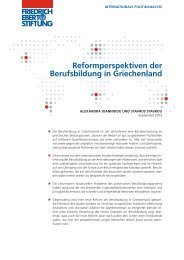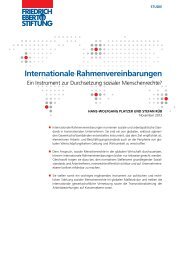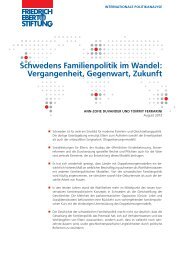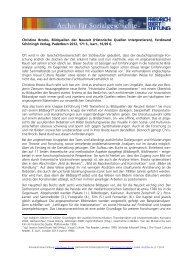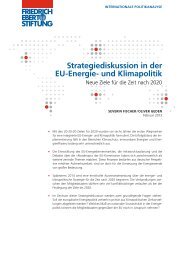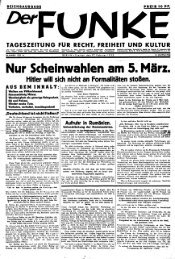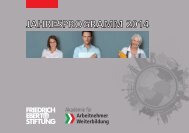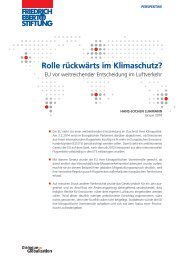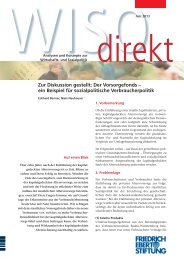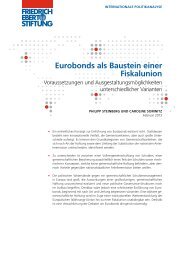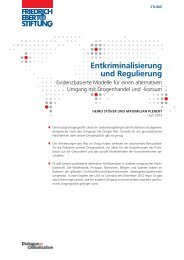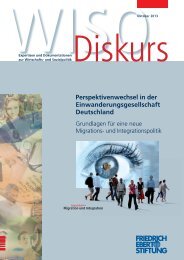Women - men - gender. - Bibliothek der Friedrich-Ebert-Stiftung
Women - men - gender. - Bibliothek der Friedrich-Ebert-Stiftung
Women - men - gender. - Bibliothek der Friedrich-Ebert-Stiftung
You also want an ePaper? Increase the reach of your titles
YUMPU automatically turns print PDFs into web optimized ePapers that Google loves.
36<br />
POLITICS AND TRADE UNIONS<br />
The reconciliation of family and job<br />
is central to achieving <strong>gen<strong>der</strong></strong><br />
equality. What is the experience of<br />
<strong>men</strong> with regard to paternity leave?<br />
Is the German Trade Union<br />
Fe<strong>der</strong>ation, DGB, going to support<br />
them on this issue?<br />
What has been the experience<br />
of the DGB with <strong>gen<strong>der</strong></strong> mainstreaming?<br />
Is this instru<strong>men</strong>t<br />
being applied?<br />
The questions were posed<br />
by Anne Seyfferth (left) and Nora<br />
Langenbacher both FES<br />
The DGB has just commissioned an Institute to inquire into the experience<br />
of these “new fathers” with their employers and colleagues.<br />
We suspect that there is still very little un<strong>der</strong>standing of this pheno<strong>men</strong>on<br />
– perhaps their superiors might support them, but there is<br />
often a lack of acceptance among their colleagues. Very little can be<br />
done in terms of law on this issue. It is necessary to sensitise and generate<br />
awareness on this issue at the work-place. We are doing this, for<br />
example, through our educational work. The theme of “The Reconciliation<br />
of Family and Job” must be more intensely integrated into the<br />
work of the Works Council. Our experience has been that the manage<strong>men</strong>t<br />
of small and medium-sized enterprises on their own make overtures<br />
to the Works Council. In or<strong>der</strong> to keep their employees they<br />
want to offer them an incentive for the family phase. This perspective<br />
is currently totally lacking in the case of big companies. For trade<br />
unions, it is very rewarding to generate awareness on this issue.<br />
We have not succeeded in applying it uniformly. The un<strong>der</strong>standing of<br />
<strong>gen<strong>der</strong></strong> mainstreaming is the greatest at the administrative level of the<br />
national executive board. Here, there is good cooperation between the<br />
various depart<strong>men</strong>ts. However, if one goes to the provinces and the<br />
regions, the picture is somewhat different. We want to evaluate the<br />
experience critically and establish what we have actually achieved in<br />
our own organization after ten years. The positive point to be made is<br />
that even in a male dominated trade union such as IG Metall awareness<br />
has been generated that greater consi<strong>der</strong>ation must be given to<br />
<strong>gen<strong>der</strong></strong>, that is <strong>men</strong> and wo<strong>men</strong>, with regard to forms of address, to<br />
planning or to advertise<strong>men</strong>ts. So there is some change, but everything<br />
takes an incredibly long time.<br />
FRIEDRICH-EBERT-STIFTUNG





